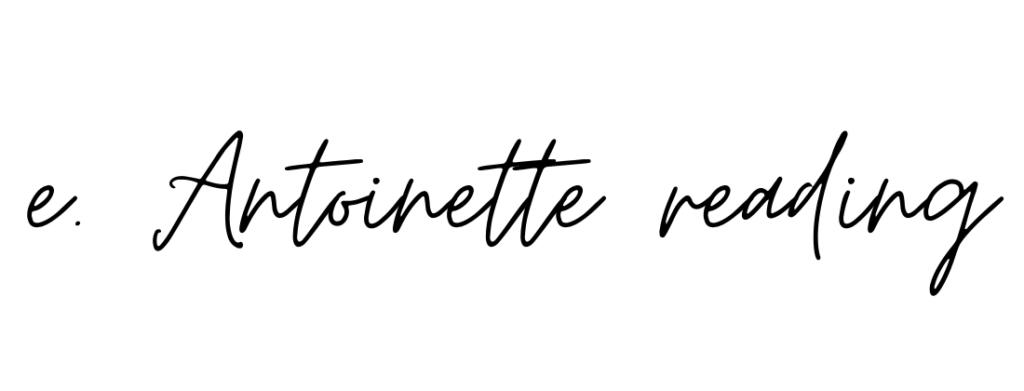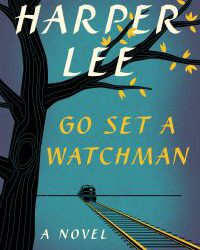Good evening, all! For those of you who have already been following me via Instagram, Google+, and Twitter… hello again. Now to extend a warm welcome to the people joining us from Facebook!
For once, I’m sad to be discussing books. With the tragedy that has occurred in Paris this evening, I feel like I should take the night off from posting a review. However, I needed to get my conflicting thoughts on my latest read out of my head. I’ll explain why shortly.
To those across the pond, I spent time wandering the streets of Paris not long ago and I was totally enchanted by the city of lights. My heart is heavy and bleeds for you all. I’m keeping you all in my thoughts. Stay strong because the rest of the world is with you in spirit! Je Suis Paris! Vive La France!
Now, bear with me because adulthood is not my friend. I will never get used to waking up as early as I do nowadays, so sometimes when I write these reviews, I need to just hope my thoughts are coherent. Feel free to point out if I’m not making any sense! You’d think I’d wait until I was bright-eyed and fully functioning before sharing my thoughts with the world, but who says I ever do things logically? I digress…
Tonight’s selection comes from none other than Harper Lee and her (sort of) newest work, Go Set A Watchman. I finished this book hours ago and I’m still debating how I feel about it. I finished it, so that has to say something. Let’s see if I can pull my thoughts together properly and hope it makes sense as a review (and not make it seem like I’m insensitive in my opinion). There’s so many gray areas and lines you don’t want to cross, but you almost have to in order to write your feelings when it comes to this story. I’ll explain…
Obviously, I was psyched when I found out Harper Lee was releasing a book set around Atticus, Scout, and Jem after 55+ years. I read To Kill A Mockingbird when I was 14 and it just really stuck with me as a tried and true favorite. When it came to her Watchman text, I had heard mixed things. I read that it was a sequel to Mockingbird, that it was the original text that never got past the publishers, that Watchman was written by Harper recently, that it was written long ago, and I’ve read that it was neither but rather a different take on the original characters we all love so much without being an encore of sorts. Needless to say, I had to do what I could to brush all the hearsay aside and approach this piece on its own.
I did also go into this with a lot of people saying how much they hated it or wouldn’t read it because Harper took everyone’s beloved Atticus and turned him into a total bigoted racist. This is not entirely wrong, but it also wasn’t what I had formed in my head as I delved into the first pages.
Go Set A Watchman puts us readers several years into the future. There’s no Boo Radley, Atticus is a slightly ailing 72 year old man, Jem is no longer around (**spoiler** he passes away from a heart condition), and Scout is 26 and living in New York. Similar to Mockingbird, Scout is our go-to lady. She’s finding her footing in not only adult/womanhood, but also in a new city. When she travels back to the deep parts of Alabama during the early stages of the Civil Rights movement, old memories and new realizations come to the front lines and none of them are pretty. This story handles some of the same tough topics Mockingbird did, but approaches them in a darker and cruel fashion.
Good, old Atticus is still his gentlemanly self. Although he has some arthritis and other mild ailments that come with age, he’s still fiercely kind and strong-willed. Scout enjoys being home with her father, the one man she’s always looked up to and admired. However, being back in town makes her realize how much she doesn’t fit in anymore.
Not only is Scout trying to break away from her tomboy persona and embrace her femininity, she’s also trying to decide if she’s going to get married to the one guy she’s known since she was a little girl. She’s not entirely sold on anything being thrown at her, so she tries to distract herself with other matters. This is where Lee turned the plot into its unpopular and controversial matter.
Segregation is not only a major issue in the US at the time, but even more so in the south. When an accident occurs and a town council meeting is called, Scout finds herself following Atticus and her potential betrothed, Hank, to the gathering. What she witnesses shocks her to her core. Every white gentleman in town is present, and they’re all as cruel as can be. They’re filled with hatred and believe black is black and white is white. The things they say are downright despicable. Scout finds herself sick to her stomach, and what she doesn’t understand is how the two men she adores can even allow themselves to be present in such a situation. While neither of them participate in the ugliness being said about dividing the races, the fact that they’re in the room is too much for Scout to wrap her head around. She reaches her breaking point and decides to cut her ties and go back to NYC.
The true climax of the story is when Scout finally confronts her father. He has always been her superhero and she never felt he could do wrong. In Mockingbird, we as readers get an example of this when Atticus defends a black man in a rape case against a white girl and wins. Justice was served and Scout always adored how her father did the right thing. After seeing him associate himself with this council to support segregation, she is disappointed and disgusted.
I could see how audiences would be upset with Atticus for taking the stance he does. When Scout confronts him on how wrong he is as far as racial issues goes, he doesn’t deny it. He maintains his cool and explains to his daughter that he simply doesn’t have a choice in the matter. There’s almost too many political details to try to understand, but Atticus tries his best to be reasonable and civil in choices. Racial divide situations in the south are bad and people are seemingly at war. Black may be black and white maybe white, but there’s a lack of understanding from both sides. Atticus and his council are the last group between “the Klan” and possible anarchy.
Almost anyone reading this book, and especially Scout’s argument with her father will take her side. You’d be crazy not to. She believes in peace and equality and doesn’t see why her father would even entertain a level of racism and hatred whether he participated in the meeting or not. Her disappointment runs bone-deep and she can barely look at her father. Playing Devil’s Advocate, the only thing I could say in the defense of Atticus is that 1) he is an old man living in the south during the Civil Rights turmoil, 2) he admitted that despite his personal feelings, justice is justice and black or white, if there’s an injustice occurring, he will defend what and who is right. The beloved man we all remember from Mockingbird is still alive and kicking despite our recent findings about him, and 3) Even though Scout tries to sever all ties with her father completely, he tells her how proud of her he is. She never wavers in her feelings and emotions, even if that means jeopardizing her loving relationship with one of her only living family members.
Reading this didn’t change my thoughts towards the Atticus I remember loving all those years ago. I read this story on its own merits and tried to form the best reaction I could. I’m team Scout. I believe in the same equality she preaches, but I could see what her father said to her as well. He wanted her to open her eyes and see how things were in the south. She left home and was having more liberal experiences in the north. The south was a different story entirely and Atticus wanted her to see that and show her as best he could how his feet were being held to the fire in certain aspects. I’m not saying his personal opinions were right. They were definitely too conservative and mean-spirited for my taste, but I have to say, I’m not surprised. An old man of the law, living in the deep south during such a controversial time was going to be set in his ways. I had to expect at least a degree of racial tension.
The most important thing I took from this piece was how profound it was relating to society today. People like to keep blinders on and act like racism in the USA is non-existent. I hate to say, it’s alive and thriving. Parts of this story were eerie to read because of how close they were hitting to current event hot topics. If you were or are a fan of To Kill A Mockingbird, I urge you to read this tale and at least gain new insights to history, because it seems to be repeating itself in this day and age.
My Final Rating: three out of five stars


